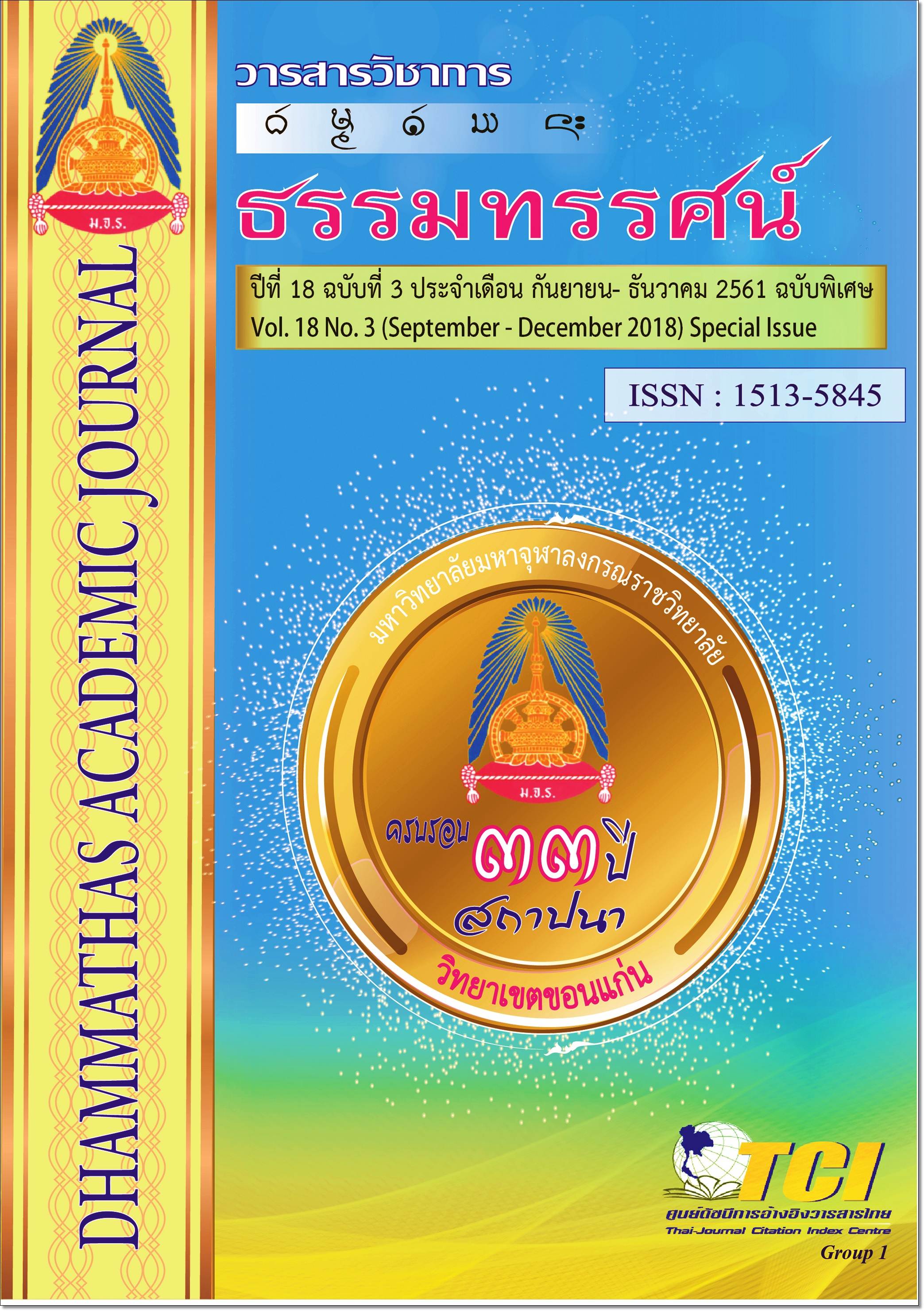A Model to Promote the Spiritual Well-Being of Adolescents According to the Principle of Buddhist Psychology
Main Article Content
Abstract
This article is intended to study the factors enhancing a spiritual well-being of adolescents according to the principle of Buddhist Psychology, to create a spiritual well-being model of spiritual well-being of adolescents according to Buddhist Psychology, and to validate, to propose a model of spiritual well-being of adolescents on Buddhist Psychology. It is a qualitative and quantitative, 1) qualitative Measures to develop quantitative instrument and 2) quantitative method to extend qualitative results.This article is intended to study the factors enhancing a spiritual well-being of adolescents according to the principle of Buddhist Psychology, to create a spiritual well-being model of spiritual well-being of adolescents according to Buddhist Psychology, and to validate, to propose a model of spiritual well-being of adolescents on Buddhist Psychology. It is a qualitative and quantitative, 1) qualitative Measures to develop quantitative instrument and 2) quantitative method to extend qualitative results.
1. The factors enhanced the spiritual well-being of adolescents were 1) peace of mind, 2) knowing how to face with problems, 3) having consciousness, meditation and wisdom, 4) living along with Dharma, 5) self-understanding, 6) self-confidence, 7) self-practice, 8) self-esteem, 9) warm family, and 10) having a relationship with friends.
2. The developed spiritual well-being model of adolescents according to the principle of Buddhist Psychology had a relationship among variables. It consisted of exogenous latent variable which was a variable of mind and it had 3 observed variables, 1) achievement motivation, 2) self-confidence, 3) problem confrontation, and endogenous latent variable consisted of 2 variables, variable of relationship among friends which had 4 measurement variables, 1) friends are helper, 2) friends who is the same in weal and woe, 3) friends who give good counsel, 4) friends who sympathizes, and the variable of spiritual well-being consists of 3 measurement variables, 1) peace, silence and generous, 2) happy with duties and living, and 3 keep precepts, consciousness, meditation and wisdom.
3. The result of validity examination of a developed model of adolescents’ spiritual well-being in Buddhist psychology found that it was in accord with an empirical data which had a value of Chi-square 70, degree of freedom 17, probability.102, Goodness of Fit Index. 990, Adjusted Goodness of Fit Index 960, and Root Mean Square Error of Approximation 035. The factors of mind explained the variance value of spiritual well-being of 81.00 percent, the factors of mind and relationship with friends explained the variance value of the spiritual well-being of 101.00 percent. The direct effect speculation found that the direct effect from the factors of mind effected on the spiritual well-being. It had an effect size of 0.38 with a statistical significance value of .01 level. The indirect effected on the spiritual well-being was the factors of mind which effected on the relationship with friends with an effect size of 0.90. The relationship with friends effected on the spiritual well-being had an effect size of 0.66 with a statistical significance value of .01 level. It showed that the variable of relationship with friends acted as a mediator in the developed model.

